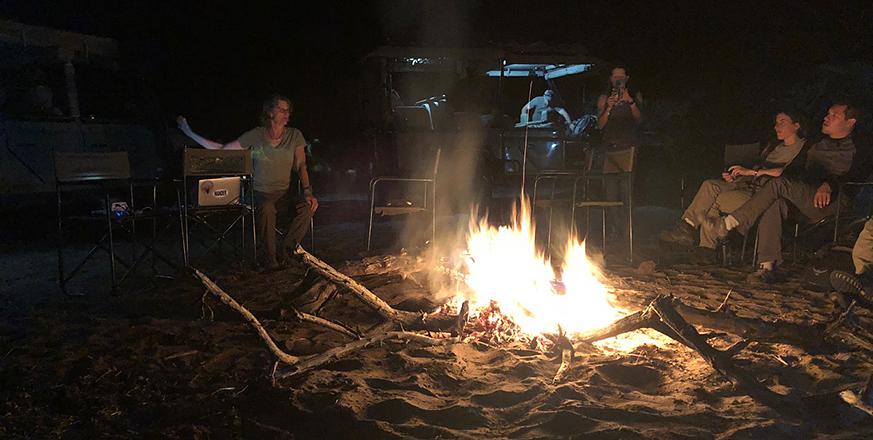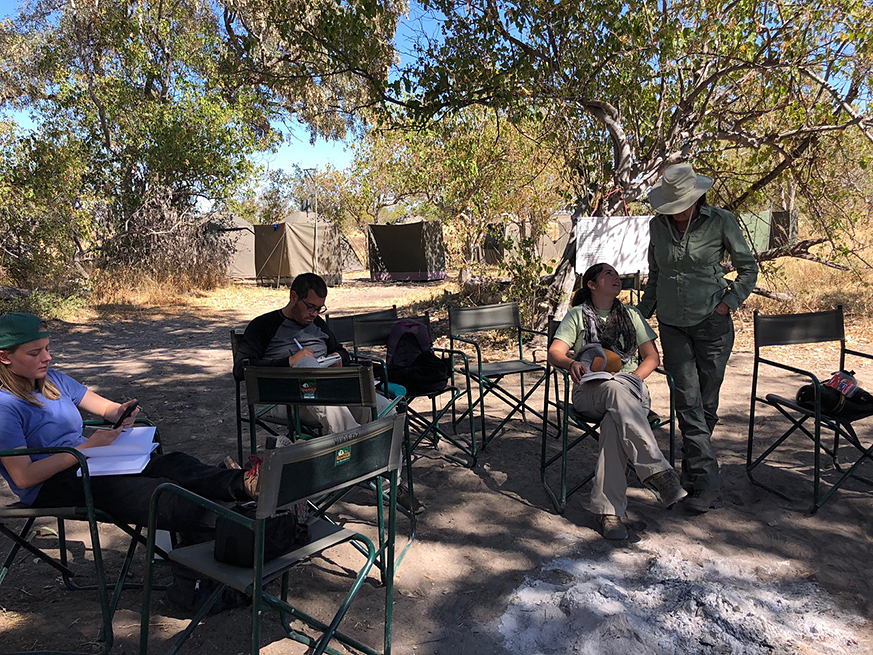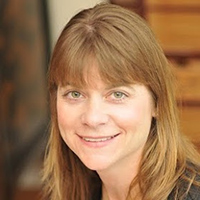Notes from the Field: Emily Casperson - Delight in Discovery

Recently, I had the opportunity to join a group of intrepid students and professors who were making Botswana their classroom. The incoming flight from Maun to Xakanaka gave a spectacular perspective of the region. While it is considered winter right now (the dry season), one could see an incredible amount of water in intricate networks interlacing the region. From this bird’s eye view, I glimpsed giraffe, elephant, zebra and impala. Stepping off the airplane, I was hit by the heat of mid-day and the heavy scent of wild sage—a smell that will always transport me back to Africa.
I was welcomed with ease and warmth. The educational structure of this program adds greater meaning to the experiences and depth to interpretations of the environment. This trip proved to be much more than a course to gain first-hand knowledge and learn new skill sets; it is also a way to exercise one’s mind, think outside the box, and embrace curiosity.
It was fascinating to observe the richness and diversity of participants’ observations as we examined local issues, saw and learned about new species, identified bird calls, and secured and analyzed samples of water, dung and soil. Everyone was interested and engaged in the learning, which created a wonderful and exciting environment. In addition to the academic rigors of the program, we had a lot of fun and delighted in the experiments, the knowledge gained, and skills honed.
The students had a major impact on how we collectively understood each place and interpreted what we saw, heard and felt. Together we analyzed situations, creating an incredible, multi-generational learning experience. Our outdoor classroom provided a safe testing ground for exploring ideas and solutions to difficult problems faced in the places we visited and the world beyond. Unique perspectives and backgrounds helped create a rich mosaic of understanding. We encouraged each other to think through issues from all angles and be thoughtful in our questioning. The community built was truly phenomenal.

Just like we need all our senses engaged on a wildlife drive (to observe as much as we can from different perspectives and angles), we need all our minds observing and questioning the complex issues/problems faced in Africa. Our collective senses help us learn and understand our environment, as well as identify how we can have a positive impact on the world.
This was a trip to an incredible part of the world with an amazing group of people in an ultimate "classroom." The delight in discovery is a treat to be around and gives me hope.
I’m reminded to -
Keep faith in humanity
Be curious
Be persistent
Take time to be still and "plug into" nature wherever I am.
On this trip, everyone was a teacher and everyone was a student. I am grateful for this incredible opportunity.
 Emily Casperson is the Senior Manager of Faculty Relations & Program Operations at Stanford Travel/Study, Stanford Alumni Association
Emily Casperson is the Senior Manager of Faculty Relations & Program Operations at Stanford Travel/Study, Stanford Alumni Association



